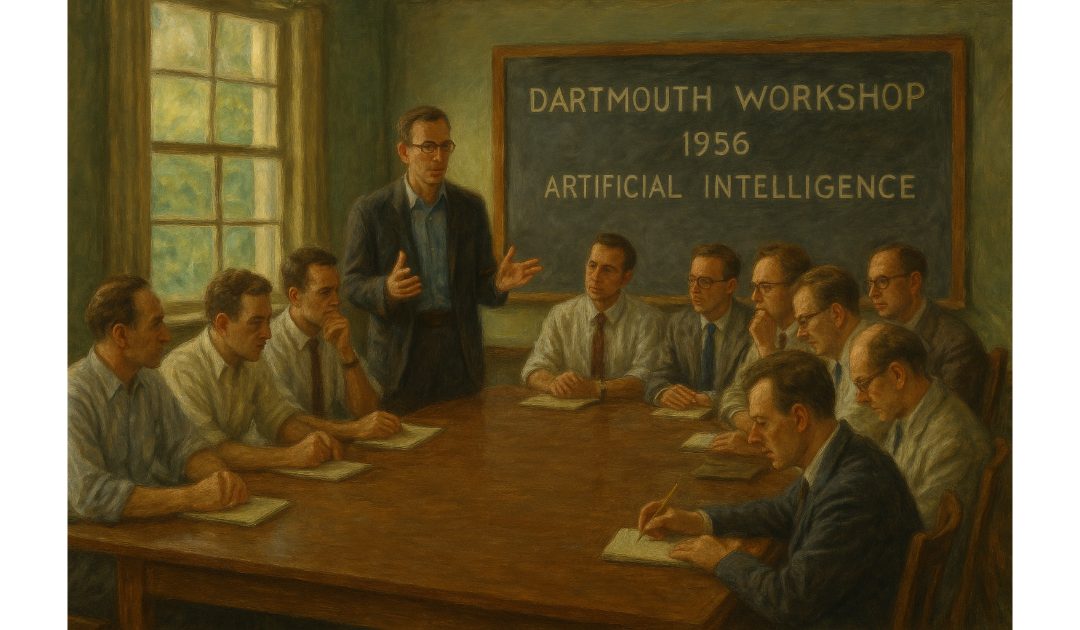It’s the 13th of July and I am spoilt for choice for my daily post. I could have written about the Siege of Haarlem, a key battle of 1573 during the Eighty Years War, a war in which my ancestor, the Elizabethan spy Sir Anthony Standen, played his part. I could have written about the inaugural FIFA World Cup in Uruguay, but I have chosen the Dartmouth workshop of 1956 on Artificial Intelligence, or AI for short.
The Dartmouth Workshop of 1956, officially known as the Dartmouth Summer Research Project on Artificial Intelligence, is widely regarded as the founding event of artificial intelligence (AI) as a distinct field of study. Held at Dartmouth College in Hanover, New Hampshire, this seminal workshop took place during the summer of 1956 and was proposed by John McCarthy, Marvin Minsky, Nathaniel Rochester, and Claude Shannon. These pioneering figures sought to explore the possibility that the processes of human intelligence could be simulated by machines.
John McCarthy, often hailed as the ‘father of AI,’ coined the term “artificial intelligence” specifically for this event. The proposal highlighted the ambition to find ways to make a machine that could “use language, form abstractions and concepts, solve kinds of problems now reserved for humans, and improve itself.” This bold vision laid the groundwork for accelerating research in a domain that was, at the time, purely speculative.
The workshop attracted a small yet influential group of attendees, including Allen Newell and Herbert A. Simon, who introduced their Logic Theorist programme regarded as the first AI programme. This programme was designed to mimic the problem-solving skills of human beings and successfully proved several mathematical theorems, which was a significant achievement. Their contribution demonstrated that machines could perform tasks that required ‘intelligence,’ thus validating the organisers’ hypothesis.
The Dartmouth Workshop facilitated lively discussions and collaborations among participants, who came from varied backgrounds in mathematics, computer science, cognitive psychology, and engineering. These interdisciplinary interactions enriched the perspectives on how machines could emulate intelligent behaviour. Although the workshop itself didn’t yield immediate technological breakthroughs, it set the stage for future AI research by establishing key questions, methodologies, and the belief that artificial intelligence was an attainable scientific goal.
In the years following the workshop, AI research blossomed, with significant funding and interest directed towards developing intelligent systems. The ideas seeded at Dartmouth influenced the creation of AI programmes capable of playing chess, solving algebraic problems, and engaging in rudimentary natural language processing.
Today, the Dartmouth Workshop is celebrated as a landmark event in the history of technology, marking the inception of AI as a formal discipline. It symbolises the collaborative spirit and visionary thinking that continue to drive advancements in artificial intelligence. The workshop’s legacy endures, reminding us of the ambitious beginnings and the transformative journey of AI from speculative theory to an integral part of modern life.

